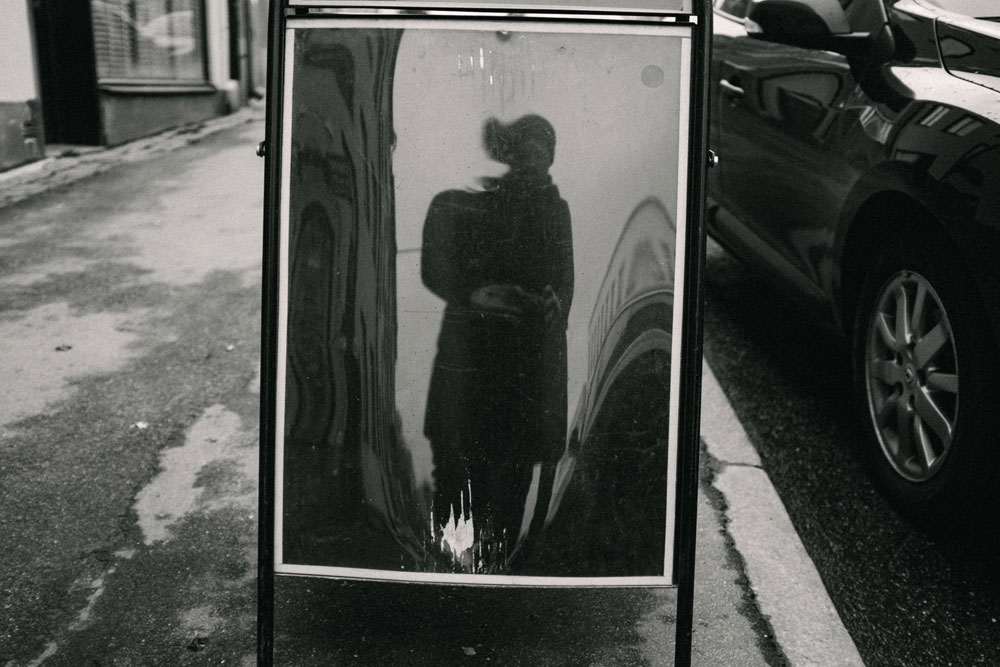
When we watch a truly great film, especially one about real, unspeakable events that happened in plain view, like Ava DuVernay’s When They See Us, our watching is layered. Foremost, we take in the excruciating story of five exonerated Black and Latino men who as boys were falsely convicted of raping a white woman in Central Park. We try to process what was done and how people suffered. We feel profound, uncontainable rage at what our criminal injustice system has done and continues to do to Black and Brown people, at how mainstream white culture and the media that feeds it voraciously consumed and distorted this case. On another layer, we are conscious of the beauty of the art: DuVernay’s piercing directorial choices, the exquisite acting.
From the opening scene of When They See Us, I was operating on both of those layers. And then, not even halfway through part one of the four-part film, I had a visceral recognition that I was viewing on a third layer as well. I was now watching the white women at the center of this injustice, prosecutors Linda Fairstein and Elizabeth Lederer (played by Felicity Huffman and Vera Farmiga respectively) through the lens of how white womanhood works. More specifically, I was watching how they operated and drawing unavoidable parallels to any number of leadership and organizational situations I have been part of or witnessed in nonprofits and philanthropy.
It’s easy to focus on Linda Fairstein. Her behavior is so unmitigated, her racism so overt and encompassing. To this day, she defends the interrogation and prosecution of Korey Wise, Yusef Salaam, Antron McCray, Raymond Santana, and Kevin Richardson. On June 10, 2019, in an op-ed in the Wall Street Journal, she had the gall to write these words: “It is a wonderful thing that these five men have taken themselves to responsible positions and community respect.” Imagine what it would feel like to read those words as one of the exonerated men who experienced the living hell of prison for something he had no part in. And Fairstein did garner immediate and enormous attention in the first days following the film’s release on May 31st. She closed down her social media and resigned from a number of boards of directors, including Vassar College and God’s Love We Deliver. Days later, Dutton and Little, Brown, publishers of Fairstein’s popular crime novels dropped her, as did her US representing agency, ICM.
But it was Elizabeth Lederer who I found myself watching closely. That’s who I recognized. Farmiga’s performance, as inspired by DuVernay’s script and direction, captured with great nuance the habits and patterns of white women I know, things I have done or witnessed in nonprofit and philanthropic contexts. I watched the four parts of When They See Us straight through on its debut weekend, and I have been visiting and revisiting these parallels ever since.
We Don’t Call Each Other Out
White women, even when we are clear that another white woman is making a significant mistake, leading in a way that disenfranchises in some important way, so rarely make that critique in front of others. We so rarely interrupt the behavior in real time. We may challenge their thinking behind closed doors, as Lederer did Fairstein’s, or behind their backs, but not in public. I did this countless times as an executive director. I have watched program officers do it in the process of negotiating grants. I have sat in any number of board meetings where white women CEOs have acted in a way that wasn’t entirely forthright or in the best interest of the organization but went unchallenged. It’s a perverse alchemy of cowardice and collusion that too often permeates our professional relationships with one another.
Of course, the consequence is that people of color in organizations or larger systems have to do the calling out. DuVernay’s film is the ultimate example of this. Until two weeks ago, both Fairstein and Lederer were enjoying great success in their careers: Fairstein a successful crime novelist, and Lederer an assistant district attorney in Manhattan and teaching at Columbia Law School. In Lederer’s case, it was the Black Student Caucus at Columbia Law School that pressured the university to fire Lederer. This week, she decided not to seek reappointment at Columbia, citing the “publicity” about DuVernay’s film but not her accountability. She was not fired; she resigned, at least publicly.
But why didn’t Gillian Lister, a white woman and the dean of Columbia Law since 2015, or David Schizer, who was dean when the men were exonerated, hold Lederer accountable at the time of the exonerations? As Elie Mystal, legal commentator and executive editor of Above the Law, wrote last month, “There is no academically defensible position that says, ‘sometimes, you just gotta round up all the n***ers and see which one of them breaks.’ There’s no scholarly position that says, ‘once you’ve been proven wrong, by direct scientific evidence, you should never apologize or speak about your errors, and instead keep going like nothing ever happened.’”
In her announcement to the law community that Lederer would not seek reappointment, Dean Lister wrote, “The mini-series has reignited a painful—and vital—national conversation about race, identity, and criminal justice. I am deeply committed to fostering a learning environment that furthers this important and ongoing dialogue, one that draws upon the lived experiences of all members of our community and actively confronts the most difficult issues of our time.”
Sign up for our free newsletters
Subscribe to NPQ's newsletters to have our top stories delivered directly to your inbox.
By signing up, you agree to our privacy policy and terms of use, and to receive messages from NPQ and our partners.
Actively confront? It took DuVernay’s film and the Black Student Caucus to get Lister to “actively confront” anything. As white women with power, when we don’t “actively confront” our own whiteness, the whiteness of other women, and the whiteness of the systems in which we operate, we send a clear and definitive message to people of color that these are our systems and they are operating just as we want them to.
Process above People
DuVernay’s script and Farmiga’s performance as Lederer capture incisively the extent to which white women in power at once prioritize and hide behind process. There are a number of times in the film where Farmiga’s Lederer demonstrates that she knows she is presenting coerced confessions and hopelessly inadequate evidence to the jury, but she carries on. The show must go on, no matter the lives being destroyed. She can disassociate from those lives and focus on her expertise, the momentum, the need to win. And when she is asked offline by an attorney for one of the accused boys to at least “play fair” —it is a game, after all—she then hides behind cynical “truths” about the process, saying in essence that this case isn’t about justice but about politics.
In white-led organizations, process is very often put above people. And very often those processes—strategy formation, budgeting, performance management, grantmaking, you name it—are not processes that allow for multiple truths or take power dynamics and existing inequities into account. As white women leaders, we take comfort in the cover these processes afford us. “This is best practice.” “This is how this is done.” “This is the political reality.”
Senator Susan Collins of Maine comes to mind. Like Lederer, Collins had all the evidence a reasonable person would need that Brett Kavanaugh not only sexually assaulted Christine Blasey-Ford but was keen to see abortion rights undermined. As Alexis Grenell wrote in a New York Times op-ed last year, “Senator Collins subjected us to a slow funeral dirge about due process and some other nonsense I couldn’t even hear through my rage headache as she announced on Friday she would vote to confirm Judge Kavanaugh.” Collins, like Lederer, allowed injustice to proceed under the guise of due process. Instead, as white women leaders, we need to use our power to interrupt, or redesign, or heaven forbid abandon processes when we learn that they are or will cause harm.
Denial of Trauma
As white women leaders, we also don’t engage fully with the trauma that the systems we design and uphold are causing others, especially people of color. Erlanger A. Turner, PhD, and Jasmine Richardson, writing in Psychology Benefits Society (a blog of the American Psychological Association), explain: “In an attempt to capture how racism and discrimination negatively impacts the physical and mental health of people of color, many scholars have coined the term ‘racial trauma’ or race-based traumatic stress. Racial trauma may result from racial harassment, witnessing racial violence, or experiencing institutional racism (Bryant-Davis, & Ocampo, 2006; Comas-Díaz, 2016).”
We need to recognize that the organizational systems of nonprofits and philanthropies are often part of the institutionalized racism that people of color encounter every day. Our practices are not merely “management choices”; they have very real mental health consequences. I didn’t learn this until my mid-40s, well into a career of nonprofit leadership. And, again, I learned it from courageous people of color with whom I worked, people who were suffering in organizational systems that I had enacted or upheld and took the risk to tell me so. I suspect I am not alone among white women leaders in this regard.
Last week, the journalist and activist Rosa Clemente commended Antron McCray, one of the five exonerated men, for not hiding his anger even as the men are finally being recognized for what they survived: “Antron McCray is so brave to be so honest about his anger as it also shows vulnerability. The trauma is something unimaginable, it is palpable. I hope he knows that he is inspiring so many Black and Brown men to be able to express similar trauma.” The trauma didn’t go away with their release from prison. The harm done to them and their families by the criminal injustice system—a system that we continue to uphold despite overwhelming evidence of the trauma it produces every day—is irreparable.
To this day, Elizabeth Lederer has not apologized for her outsized role in causing irreparable harm to Wise, Salaam, McCray, Santana, and Richardson. As the legal commentator Mystal wrote, “It has been SEVEN YEARS since DNA evidence exonerated the Central Park Five. Seven years! That’s given Lederer more than enough time to apologize. That’s given her more than enough time to learn from her mistakes, try to make amends, and start her long path to redemption.” I sit with how many white women—from her colleague Linda Fairstein during the trial right up to her last days at Columbia Law School—have allowed her to think that redemption was not necessary.











